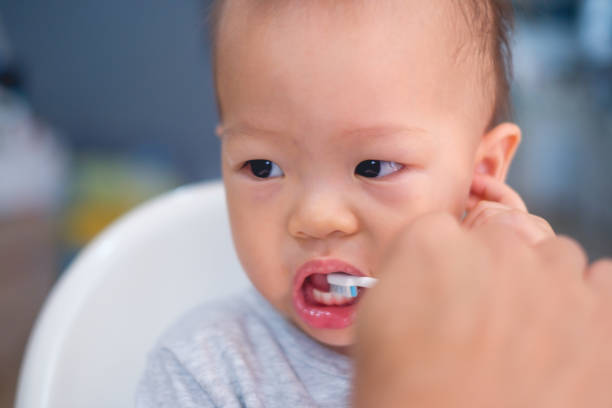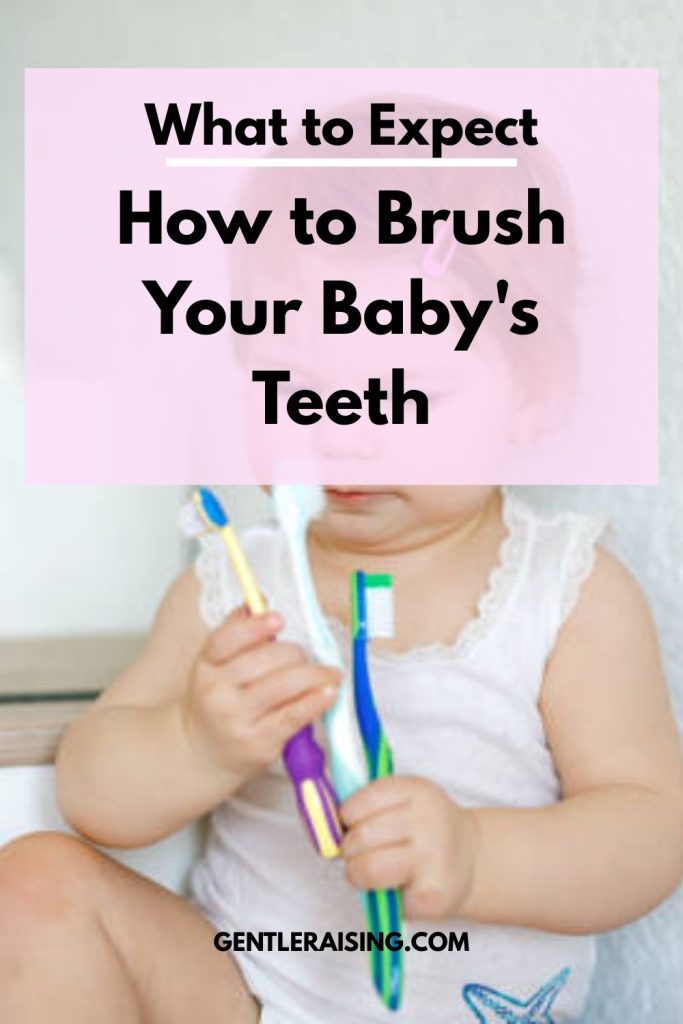Hold up. Do Babies Even Have Teeth?
It’s funny, right? You’re running on two hours of sleep, clutching a cold coffee, staring at your drooling baby like, Wait, am I supposed to be brushing that gummy smile already?
Yep. You’re not alone.
And the answer might surprise you: You should start “brushing” before the first tooth even shows up. That’s right, oral care for babies doesn’t wait until the pearly whites make their grand debut.
Let’s walk through the real talk of infant oral hygiene, without the dental jargon, and with a little grace for parents who are just trying to make it through the day without putting the remote in the fridge.
Before Teeth: Clean Those Gums (Yes, Really)
Here’s the thing: just because your baby doesn’t have teeth yet doesn’t mean bacteria aren’t already setting up camp in there. Milk residue (especially formula or breast milk left overnight) can contribute to plaque buildup even on toothless gums.
So what can you do?
Simple:
- Use a clean, damp washcloth or a soft silicone finger brush
- Gently wipe down the gums twice a day, after the morning feed and before bedtime
It takes less than a minute, but it lays the groundwork for healthy teeth (and fewer tearful dentist visits down the road). Plus, it helps your baby get used to the idea of oral care, so they don’t scream bloody murder when you bring out the toothbrush later.
When That First Tooth Pops. It’s Go Time
Usually around 6 months (though it could be earlier or later; every baby writes their own timeline), you’ll see a little white ridge poking through the gum.
Boom. Game changer.
That tiny tooth is now vulnerable to decay, yes, even that one. So it’s officially time to start brushing.
Here’s the cheat sheet:
- Use a baby-sized, soft-bristle toothbrush
- No toothpaste at first, or just a smear (rice grain size) of fluoride toothpaste
- Brush gently, twice a day. Morning and night.
Don’t worry too much about technique in the beginning. It’s more about habit and exposure. Think of it as less “getting it perfectly clean” and more “hey, this is part of our routine now.”
What About Toothpaste? Fluoride or No Fluoride?
Ah, the toothpaste debate. Let’s break it down.
The American Dental Association and most pediatric dentists recommend a smear of fluoride toothpaste as soon as teeth appear. That’s because fluoride helps prevent early tooth decay, especially since baby teeth are thinner and more fragile.
“But fluoride sounds scary!”
That’s totally valid, especially with all the noise online. But when used properly (just a tiny smear), fluoride is safe and effective. Still not sure? Ask your paediatrician or dentist. You’re allowed to have questions. You’re supposed to.
Just avoid:
- Whitening toothpaste
- Any toothpaste labelled for adults
- Gels or pastes with “natural” ingredients that don’t include fluoride but claim to prevent cavities (those can be misleading)
How Do I Actually Brush My Baby’s Teeth Without a Wrestle?
Great question. Because most babies? Not fans.
Here are a few real-life, trial-and-error tips:
- Let them “brush” your teeth first – Babies love copying you.
- Make up a silly toothbrushing song – You don’t need a Grammy nomination, just enthusiasm.
- Use a distraction – a favourite toy, or let them hold a second toothbrush.
- Tag team – One parent holds the baby, the other brushes.
- Brush during bath time – They’re already wet and distracted.
And if it all fails? That’s okay. Try again tomorrow. What matters is consistency, not perfection.
Teething Woes and What They Have to Do With Brushing
You know what’s the worst combo? Teething pain and toothbrush resistance.
When your baby is teething, their gums are tender. Brushing might not feel great. But don’t skip it, just go gently.
You can try:
- Using a chilled silicone finger brush
- Letting the baby chew on the toothbrush a little before brushing
- Brushing mid-day instead of at night if they’re crankier before bed
It’s a dance. And sometimes, it’s clumsy.
The Magic Number: When to Book Baby’s First Dentist Appointment
Ready? Deep breath.
Your baby should see the dentist by their first birthday. Even if they only have one or two teeth.
It sounds early, but this visit is more about prevention, not correction. The dentist will:
- Check tooth and gum health
- Help you understand brushing techniques
- Spot any potential issues early
- Calm any nerves you might have
Think of it like a well-baby visit, but for the mouth.
Wait, Do Baby Teeth Really Matter if They Fall Out Anyway?
Honestly? Yes. So much.
Here’s why:
- Baby teeth hold space for adult teeth; lose them too early, and spacing issues pop up
- Cavities in baby teeth can cause pain and infection
- Poor baby oral care habits = tougher time transitioning to big kid care
Plus, early cavities can knock your confidence as a parent. Not because you failed (you didn’t), but because no one told you how much those baby teeth matter.
Let’s change that.
Common Mistakes Parents Make (And Why You Shouldn’t Stress About Them)
We’re all just doing our best, okay? But here are a few hiccups to keep on your radar:
- Skipping brushing during teething weeks
- Letting baby fall asleep with a bottle of milk or juice (yep, nighttime sugar = tooth decay)
- Using too much toothpaste
- Thinking “only one tooth = no big deal”
You’re not being judged. The point isn’t to be perfect, it’s to be consistent, and to adjust when you know better.
Should You Brush After Night Feeds?
This one’s tough.
If your baby still feeds during the night (especially bottle-fed babies), there’s a risk of sugars sitting on their teeth. Ideally, you’d clean their gums/teeth after.
But let’s be honest, sometimes they fall asleep before you even get the burp cloth.
Here’s a compromise:
- Gently wipe their mouth with a damp cloth if they fall asleep feeding
- Try brushing before bed, even if there’s a feed later
- Once they’re able to drop night feeds, brushing after the final feed is the goal
You’re juggling a lot. Grace over guilt.
Quick FAQ for Sleep-Deprived Parents Who Just Need the Highlights
Q: When should I start cleaning my baby’s mouth?
Before the first tooth, use a soft cloth or finger brush twice daily.
Q: What kind of toothbrush should I use?
Small, soft-bristled, baby-specific toothbrush.
Q: When can I use toothpaste?
As soon as the first tooth erupts, just a tiny smear of fluoride toothpaste.
Q: How often should I brush?
Twice a day. Morning and night.
Q: When’s the first dentist appointment?
By age 1 or within 6 months of the first tooth showing up.
Q: What if they hate brushing?
You’re not alone. Keep it playful, consistent, and low-pressure.
One Final Thought: You’re Doing Great
Seriously.
There’s a mountain of advice out there, and honestly, some of it contradicts itself. But if you’re here, reading this, that means you care. That’s what really matters.
Start small. Make it part of your baby’s day. Brush together. Laugh when it goes sideways. And remember: you’re not trying to raise a perfect brusher overnight. You’re raising a human who learns good habits over time, with you, cheering them on every step of the way.
And one day? That baby will brush their own teeth without you even asking.
Now wouldn’t that be something?

